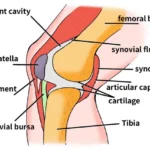Introduction
Recovery from arm surgery can be a challenging process, but with the right strategies, you can accelerate healing and regain full functionality more quickly. Whether you’ve undergone surgery for a fracture, tendon repair, or joint replacement, this guide will offer evidence-based tips to help you navigate the post-operative period effectively. It will also address common concerns and frequently asked questions (FAQs) to equip you with the knowledge needed for a smoother recovery.
Understanding Your Surgery and Setting Expectations
Types of Arm Surgery and Recovery Timelines
Arm surgeries can range from simple fracture repairs to more complex procedures like tendon reattachments or joint replacements. Understanding the specific nature of your surgery is crucial as it dictates the recovery timeline. Generally, recovery can take anywhere from a few weeks to several months, depending on the procedure and your overall health.
Setting Realistic Expectations
Discuss with your surgeon what to expect in terms of pain, mobility, and the timeline for returning to daily activities. Setting realistic expectations helps you mentally prepare and avoid frustration during recovery.
Pain Management
Medications and Alternatives
Post-surgical pain management often involves medications such as NSAIDs or opioids. However, over-reliance on these can have side effects, including delayed bone healing. Alternatives like cold therapy, elevation, and certain supplements (e.g., Omega-3s and Vitamin D) can also be effective in managing pain.
Non-Pharmacological Pain Relief
Techniques such as meditation, breathing exercises, and acupuncture may provide additional relief and reduce your dependency on medications.
Nutrition for Faster Healing
Protein and Collagen
A diet rich in protein and collagen-boosting foods can significantly aid in tissue repair. Incorporating foods like bone broth, lean meats, and fish into your diet provides the necessary building blocks for healing.
Vitamins and Minerals
Vitamins C, D, and K, along with minerals like calcium and magnesium, are essential for bone and tissue health. Consider supplements if your diet is lacking in these nutrients, but consult your healthcare provider first.
Physical Therapy and Rehabilitation
The Role of Physical Therapy
Physical therapy (PT) is integral to regaining strength and mobility. Your PT regimen will be tailored to your specific surgery and should start as soon as your doctor permits. Early mobilization can help prevent stiffness and muscle atrophy.
Exercises to Promote Recovery
Exercises may include gentle stretching, strength training, and range-of-motion activities. Common exercises after arm surgery include pendulum swings, assisted shoulder rotations, and isometric muscle contractions. It’s vital to perform these under the guidance of a physical therapist to avoid re-injury.
Preventing Complications
Avoiding Infections
Infections are a serious risk after surgery. Follow your surgeon’s wound care instructions meticulously, which may include keeping the incision site clean and dry, changing dressings regularly, and watching for signs of infection like redness, swelling, or discharge.
Managing Swelling and Lymphedema
Swelling is common after arm surgery and can lead to complications like lymphedema. Strategies to reduce swelling include wearing compression garments, elevating the arm, and performing lymphatic drainage exercises.
Lifestyle Adjustments
Sleep and Rest
Adequate rest is crucial for recovery. Try to sleep with your arm elevated to reduce swelling and ensure you get enough sleep to allow your body to heal effectively.
Ergonomics and Daily Activities
Modifying your daily activities to avoid putting strain on your healing arm is essential. Use adaptive devices to help with tasks like dressing, eating, and typing, and avoid lifting heavy objects until your surgeon gives you the green light.
Mental Health and Emotional Support
Dealing with Emotional Challenges
The recovery period can be emotionally taxing. It’s normal to feel frustrated or depressed during this time. Seeking support from friends, family, or a mental health professional can help you cope with these emotions.
Support Groups and Counseling
Joining a support group for people recovering from surgery can provide emotional support and practical advice. Counseling can also be beneficial if you struggle with anxiety or depression during recovery.
FAQs: Recovering from Arm Surgery
Q1: How long will it take for my arm to heal completely?
- A: Healing time varies depending on the type of surgery, your overall health, and how well you follow post-operative care instructions. Most people regain full function within 3 to 6 months, but it can take longer for complex procedures.
Q2: Can I return to work immediately after arm surgery?
- A: The timing for returning to work depends on your job type and the nature of your surgery. Desk jobs may allow for a quicker return, while physically demanding jobs may require a longer recovery period.
Q3: What should I do if I experience severe pain after surgery?
- A: Severe pain should be reported to your surgeon immediately as it could indicate a complication such as infection or improper alignment of the bones.
Q4: Is it normal to experience numbness or tingling after surgery?
- A: Some numbness and tingling can be normal, especially if nerves were involved in the surgery. However, if these symptoms persist or worsen, consult your doctor.
Q5: How can I prevent stiffness in my arm during recovery?
- A: Regular, gentle exercises as prescribed by your physical therapist can prevent stiffness. It’s important to balance rest with movement to avoid both stiffness and re-injury.
Conclusion
Recovering from arm surgery requires a comprehensive approach that includes pain management, proper nutrition, physical therapy, and mental health support. By following these guidelines and staying in close communication with your healthcare team, you can enhance your recovery and return to your normal activities more quickly. Always consult your healthcare provider before making any changes to your post-surgical care plan.
This guide incorporates insights from trusted medical sources, including the Cleveland Clinic, Johns Hopkins Medicine, and the American College of Surgeons.





